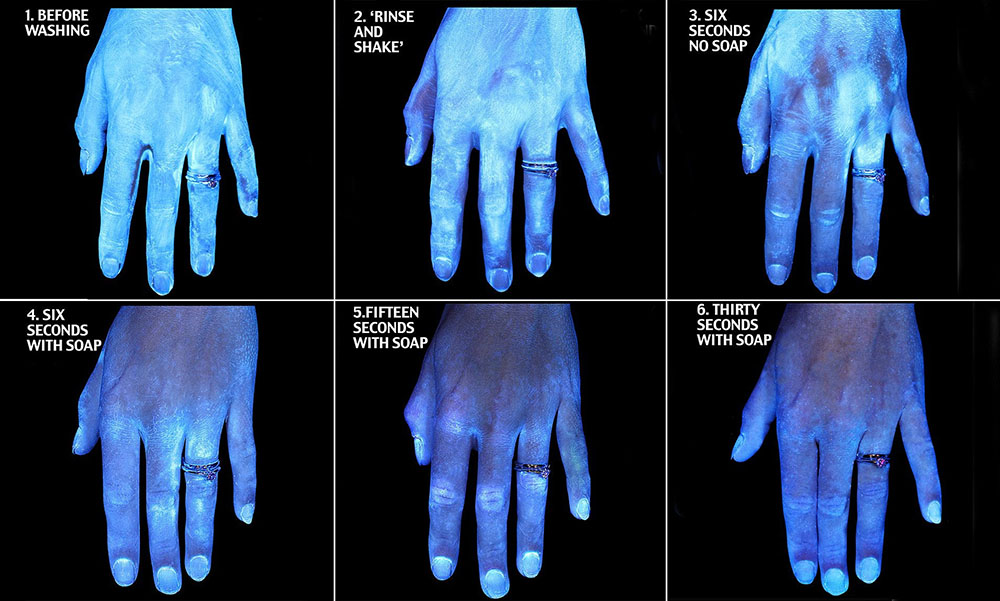
Learn the science behind washing your hands and why it is one of the most effective ways to avoid COVID-19.
How does hand washing really work?
While researchers are still trying to learn more about COVID-19 and how it spreads, what they do know is that hand washing is critical, for both the sick and healthy, to preventing the spread of the coronavirus.
According to Popular Science, hand washing works by chemically removing microbes from your hands. Soap is what is called a surfactant, which breaks down the oils and dirt on your skin. Water then rinses the broken-down oils and dirt away.
Using just water can get hands a tiny bit cleaner, but it is nowhere as effective as using soap, especially when dealing with a virus such as COVID-19. Lathering soap creates friction which helps remove the microbes further and is recommended for every part of the hands.
According to the Centers for Disease Control (CDC), research suggests washing hands for 15-30 seconds removes more germs from hands than washing for shorter periods.
In general, wash your hands after going to the bathroom, before eating and after coughing, sneezing or blowing your nose. Dry your hands thoroughly as wet hands can be an invitation to the virus. Use hand moisturizer afterwards if needed.
Experts also strongly urge people to avoid touching their face throughout the day because potential microbes on your hands can carry over to your mucus membranes around your eyes, nose and mouth.
How is COVID-19 spread?
Like many respiratory viruses, COVID-19 is spread through touching a surface with the virus on it and through droplets from either coughing, sneezing or breathing in close contact (within six feet or less).
In an ever increasing world of online misinformation, it’s more important than ever to get news about COVID-19 from trusted sources.
What are the symptoms?
Symptoms appear 2-14 days after exposure and primarily include fever, cough and shortness of breath. People are thought to be most contagious when they are sickest, though some spread is possible before people show symptoms. This makes it very important to be careful and practice good hygiene even around people that seem healthy.
What do you do if you get sick?
If you are sick, the most important thing is to stay home and restrict activities outside your home, except for medical care. Do not go to work, school or public areas. Call ahead before visiting your doctor, and tell your healthcare provider if you believe you may have COVID-19. Wear a mask when going out to visit the doctor.
If you experience shortness of breath with one or more of the following symptoms, go to the emergency room: chest pain, dizziness, sweating, trouble breathing or extreme fatigue.
How do I stay informed?
Wesley will continue to publish updates on campus precautions. Please contact our campus directors for any questions or concerns.
For general information and updates about the coronavirus in the state of Washington, visit only official and trusted sources to avoid misinformation or phishing scams.
Visit King County’s website to follow the most current news updates about new cases and testing: https://kingcounty.gov/depts/health/news.aspx
The Washington Department of Health offers current statistics on the virus in the state as well as general information and guidance: https://www.doh.wa.gov/Emergencies/Coronavirus
Visit the CDC’s website for the most up-to-date information on COVID-19: https://www.cdc.gov/coronavirus/2019-ncov/index.html